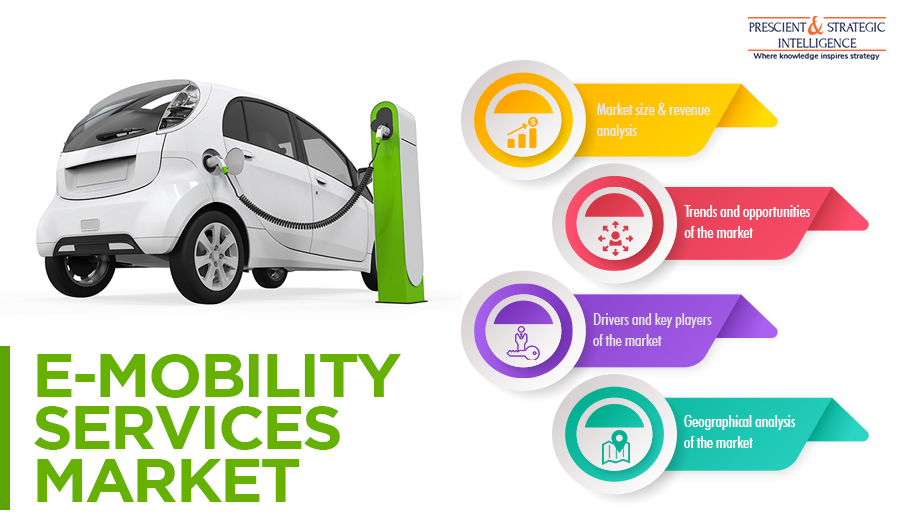The global electric mobility services market is witnessing growth. This development can be credited to the reasonably lesser price of ownership attached to the electric fleet, armed with the surging ecological worries throughout the world.
In recent years, the two-wheeler sharing category led the electric mobility services industry, based on service type. This is credited to the fact that apart from being a suitable, inexpensive, and quicker mode of traveling, e-two-wheeler sharing facilities also fulfill the requirement for last-mile traveling throughout the globe.

The category is further divided into scooter sharing, bike sharing, and kick scooter sharing. Between them, the bike-sharing category had the largest industry share in recent years, credited to the enormous utilization of these services in China.
The passenger car category is further segmented into plug-in hybrid electric vehicles and battery-electric vehicles. Between them, the BEV category is responsible for the greater share in the industry in recent years, ascribed to the helpful government steps, in the form of incentives and strategy formulations, which inspire the acceptance of such vehicles, and the working advantages BEVs provide over plug-in hybrid electric vehicles.
In the past few years, last-mile commuting was the largest category in the industry, based on commuting patterns. Also, the category is projected to stay the largest industry in the projection period. This is mainly because e-mobility services offer ease to users, to commute even the shortest distances, from mass transportation spots, like metro stations and bus stops, to their terminus, therefore removing the requirement to walk down that distance.
In the past few years, many cities across China augmented the utilization of electric vehicles (EVs) across numerous service channels, to encourage a greener atmosphere. With constant backing from the government, in the form of strategies and incentives, the industry in China is projected to showcase strong growth in the near future.
Hence, the reasonably lesser price of ownership attached to the electric fleet, armed with the surging ecological worries throughout the world are the major factors propelling the industry.
